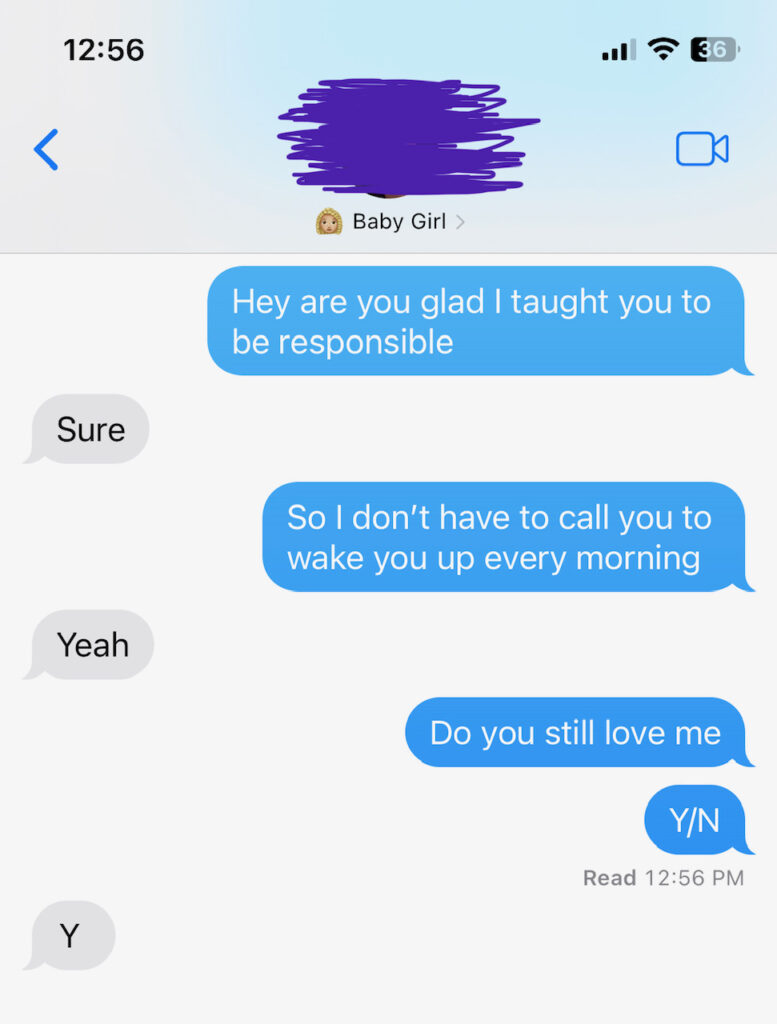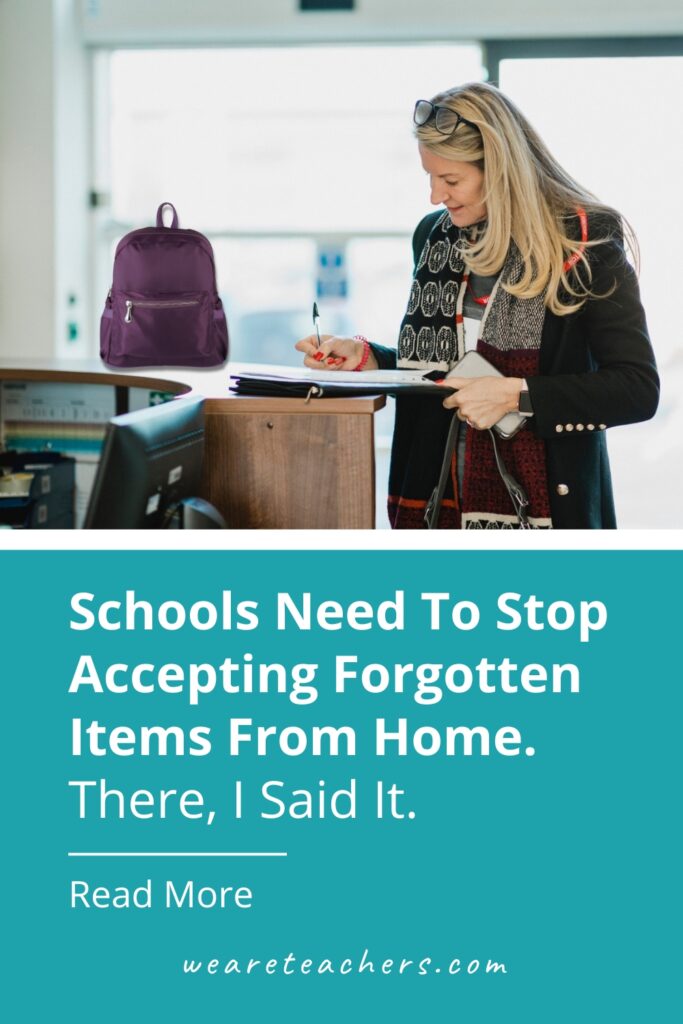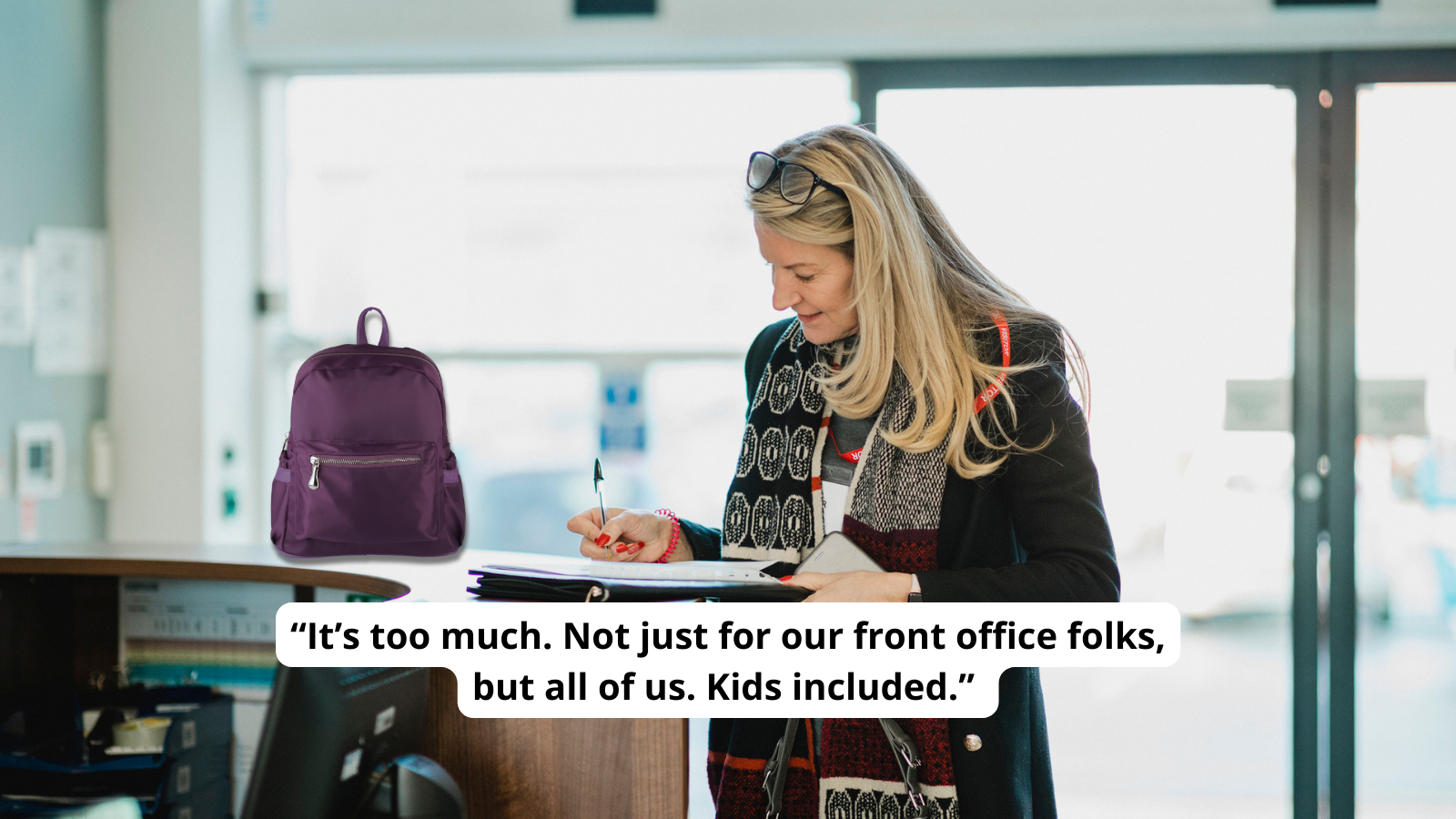This article was submitted by a high school teacher and parent who wishes to remain anonymous.
After teaching high school for 17 years, not a lot infuriates me anymore. My bar for rage is much, much higher than most people.
Last year, I took up a student’s Switch during class and received a colorful insult I can’t repeat. I nodded empathetically and said, “I can tell you feel strongly about this.”
This past spring, a parent pointed in my face and reminded me that they pay my salary. I pretended that was important information, remained calm, and returned to class and taught another three classes in a row.
Already this school year I almost got run over by a student’s car flying through the parking lot. I knew I could have my principal look up the offender on our security camera … but I didn’t have the energy.
See what I’m saying? I’m pretty unflappable. (I’m recognizing as I type this that it might be unhealthy, for the record.)
However, there is one thing that everyone on campus knows is both my downfall and my soapbox, and that is this: The daily stampede of grown-ups bringing forgotten items to school.
On any given weekday at our large school, there is a constant parade of parents and students in the front office to either drop off or retrieve forgotten items from home.
It’s too much. Not just for our front office manager, but for everyone in a school. Here’s why.
3 Reasons We Should Stop Accepting Items Forgotten at Home
1. It’s unsafe.
This is the biggest reason it bothers me. A constant flow of people in and out of a school unnecessarily—even if they remain in a locked lobby—is dangerous.
After every school shooting, we get a new speech on how entrances need to be safer. But even state-of-the-art entrances with all the bells and whistles can’t compete with chaos. Any police chief will tell you: The heavier the foot traffic is in a given area, the easier it is for an intruder to go unmonitored.
What on earth are we doing letting complete strangers hand a concealed package to students (or worse, abandon it on a desk in a crowded area) 27 times an hour?
I don’t like thinking about it any more than you do, but when it comes to safety, we have to be smarter than this.
2. It’s a waste of time and resources.
Apart from obvious medical exceptions (phone addiction doesn’t count) and the occasional outlying circumstance (e.g., schools that don’t provide lunch for students who forgot theirs), there is no need to bring students things they forgot at home.
Bringing forgotten items to school wastes:
- Teachers’ time when they send students in and out of class or retrieve items themselves.
- Students’ time when they miss class to get unnecessary items.
- Front office staff’s time managing the exchange of all these forgotten items every day.
- Our security guard’s attention.
3. We are hurting our kids if we shield them from every unpleasant feeling.
I have twin daughters in college whom I love more than anything. When they were growing up, it was important to me that they become responsible, self-evaluative, and resilient—which, after a full year in college for engineering and business, I feel confident saying they both are.
But you know what? They couldn’t become responsible, self-evaluative, or resilient if they didn’t also experience discomfort and sadness.
Getting a late grade on a big project. Having to run laps at soccer practice because they forgot their shin guards. Being cold for a whole class period in the (“DAD, IT IS LITERALLY SUBARCTIC!”) art room.
They learned by experiencing these unpleasant feelings. Not wanting it to happen again, they took action. They started setting calendar reminders and alarms for themselves. For months we had a rotation of Post-Its on the front door to make sure they had their jackets, shin guards, phones, and water bottles. They emailed teachers to see if they could submit projects early and recoup lost points via extra credit.
Did I want to bail them out and end their suffering? Yes. Were they mad at me in the moment? Duh. Are they ultimately grateful they learned to be self-sufficient before college and aren’t melting down, dropping out, or begging their parents to email their professors like so many of their classmates right now? Let’s ask one of them.

See that, folks? You can’t get a more enthusiastic Gen-Z endorsement than that.
Are there exceptions?
Yes. Medication or medical devices. Maybe the very rare outlier.
But I worry about how many parents think their child is the exception. Some parents I’ve talked to have said their child is too fragile or too sensitive or too disorganized to manage without the regular delivery of things they need. Do we have that many exceptions filling our front office?
In fact, I would argue that even students with ADHD or an anxiety disorder will be OK—even, dare I say, benefit—if they have to live through a day without something they forgot at home.
After all, both my girls did.
For more articles like this, be sure to subscribe to our newsletters.


